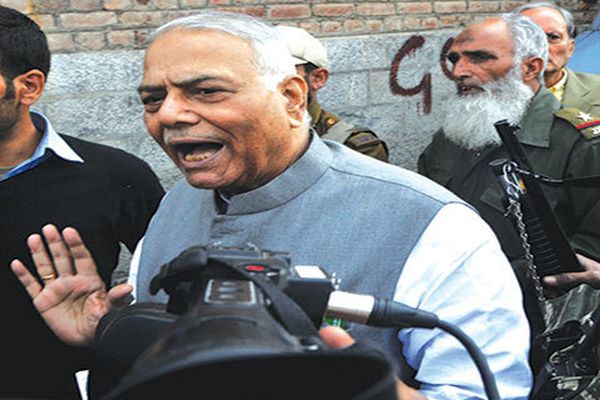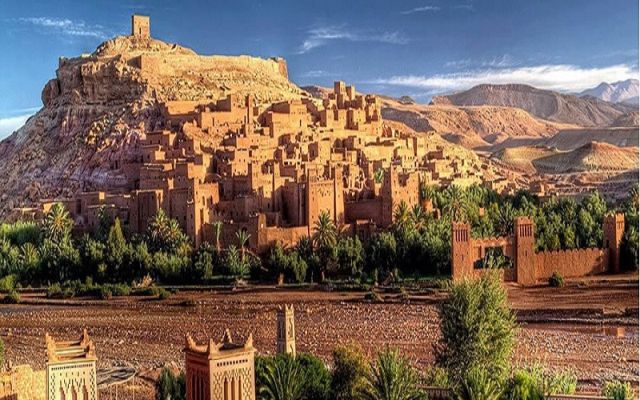
by admin | May 25, 2021 | Commodity Market, Economy, Investing, Markets, News
 By Arul Louis,
By Arul Louis,
United Nations : India has called for a new global partnership to stimulate the weak economic growth through long-term investments in critical sectors and enhancing trade.
The global economic recovery is only progressing slowly and growth is weaker than expected while risks persist, Ashish Sinha, a First Secretary in India’s UN Mission, told the General Assembly committee dealing with economic and financial matters on Thursday.
In this scenario, there was great need for a renewed global partnership to promote longer-term investment, including foreign direct investment, in critical sectors such as transportation, agriculture, energy, infrastructure, and information and communications technology, he said.
“Policies for enhancing economic growth and growth inducing investment should be our top priority,” he said.
In July, the World Bank projected the global growth rate for this year to be just 2.7 per cent, marginally up from last year’s 2.4 per cent.
Sinha said: “The new partnership should also identify effective mechanisms to mobilise additional resources for financing sustainable development.”
He recommended trade liberalisation and integration into the global economy as a way to spur growth in developing countries citing the case made by Arvind Panagariya, the former vice chairperson of the Niti Aayog, in his keynote address to the committee.
“Open trade is a means to create employment and contribute to achievement of SDGs (UN’s Sustainable Development Goals) through greater economic activity and revenues,” he said.
“Developing countries derive significant benefit from an open, fair, rule-based, predictable, and non-discriminatory trading and financial system.”
Sinha gave an assurance of India’s support for a multilateral trading system with the World Trade Organisation (WTO) “as the cornerstone”.
“India believes that multilateral negotiations such as those envisaged under the Doha Development Agenda (DDA) are aimed at addressing existing inequities in the trading system and must be given high priority,” he said.
The DDA the WTO negotiation launched in Doha in 2001 aimed at lowering trade barriers and revising trading rules to mainly benefit developing countries.
Sinha said that additional measures such as improving rural infrastructure were needed to help integrate rural households into world markets.
(Arul Louis can be reached at arul.l@ians.in)
—IANS

by admin | May 25, 2021 | Economy, News, Politics

Yashwant Sinha
New Delhi : In a riposte to Prime Minister Narendra Modi, senior BJP leader Yashwant Sinha on Thursday said he won’t watch silently when the Indian economy was facing “cheerharan” — like Bhishma when Draupadi was disrobed in the Mahabharata.
Replying to Modi’s speech on Wednesday in which he compared his critics to Shalya, the demoralising character in the Mahabharata, Sinha said he was not sure who was being likened to him.
“I only want to say, if we are talking in terms of Mahabharata, I cannot watch in silence like Bhishmapitamah when Draupadi was subjected to ‘cheerharan’ (disrobed). I won’t let the same happen (with economy),” the former Finance Minister told Aaj Tak TV.
Modi in his address to the Institute of Company Secretaries of India on Wednesday said his critics were suffering from “shalya vrutti” who “sleep well only after they spread a feeling of pessimism all around”.
Sinha said Modi “doesn’t listen” but “only speaks”.
“When the Prime Minister speaks, nobody can question. He makes his speech, then there are cheers and it ends there.”
He said he wanted to ask what the BJP would say about the promises Modi made before coming to power when the 2019 Lok Sabha election takes place.
“Nobody is going to ask us how our performance was as compared to UPA. The UPA is history. They will ask us about the promises we made. Have we fulfilled them?”
In another TV interview, Sinha said it was not important to know who was pessimist or optimist.
“Failure or success is not important. What is important is the issues being raised by me and by others must be tackled. The basic purpose of my raising these issues was to bring them to the notice of the government and encourage the government to be able to find a solution to the problems confronting the economy now,” he said.
He said personal attacks won’t work for the Prime Minister. He said nobody was judging the economy on the basis of one quarter.
“We are aware of the fact that it has been declining quarter after quarter… It has been 5 to 6 quarters now.. not just one.”
Sinha said the GDP growth was 5.7 per cent in the last quater of the last financial year and he didn’t speak up.
“When the same continued, the impression was that the slowdown is here to stay and we will take every effective steps in order to ensure that we get out of this slowdown.
“The purpose was to apprise the government of the situation that they were not aware, to sensitise them so that they move forward. The government goes to town, beating its drums at the slightest indication of progress. You can’t have one yardstick for yourself and another for the other.”
—IANS

by admin | May 25, 2021 | Muslim World
 Jeddah : The Islamic Organization for Food Security (IOFS), the Astana-based OIC specialized institution, established a cooperation framework with the Arab Organization for Agricultural Development (AOAD) aimed at collaborating on joint programmes and project development as well as promoting exchange of knowledge, best practices and expertise in the domain of agriculture, rural development and food security for the benefit of their member states.
Jeddah : The Islamic Organization for Food Security (IOFS), the Astana-based OIC specialized institution, established a cooperation framework with the Arab Organization for Agricultural Development (AOAD) aimed at collaborating on joint programmes and project development as well as promoting exchange of knowledge, best practices and expertise in the domain of agriculture, rural development and food security for the benefit of their member states.
This measure was concretized on 28 of September as the Director General of IOFS and Director General of AOAD concluded a Memorandum of Understanding (MoU), on cooperation between the two organizations at the OIC headquarters in Jeddah, Saudi Arabia.
It should be mentioned that the inaugural general assembly of IOFS was held in Astana, Kazakhstan on 26-28 April 2016 concurrently with the Seventh OIC ministerial conference on food security and agricultural development. The general assembly elected the 8-member executive board of the IOFS as well as appointed Director general of IOFS Secretariat. Besides, the general assembly approved a 5-year plan of action of the organization that would seek to implement quick-win programmes aimed at fast-tracking exchanges and cooperation among IOFS member states.
IOFS 5-year plan of action includes: the creation of a comprehensive database and conducting research on all aspects of the food security; establishment of agricultural and scientific-research fund; establishment of agriculture SME fund; development of regional food security programmes (RFSP), and elaboration of IOFS investment programmes, among others.
—SM/IINA

by admin | May 25, 2021 | Muslim World

Ouarzazate City in Morocco
Ouarzazate City : Ouarzazate City in Morocco has recorded the best national performance for overnight stays in the first seven months of 2017, with a 41 percent increase in the number of tourists compared to the same period in 2016, according to the provincial tourism office.
The month of July saw major growth, with a 77 percent increase in arrivals and a 75 percent overnight stays compared to 2016.
The total number of tourists who visited the region rose from 109,474 for the first seven months of 2016 to 154,677 for the same period of 2017, thus increasing by 41 percent, Morocco World News reported.
According to figures from the provincial tourism office of Ouarzazate, the increase is the result of growth in the number of arrivals of residents, which reached 34,199 during this period and 27,021 in 2016, an increase of 27 percent.
The number of non-resident tourists increased more than the number of residents, rising by 43 percent, from 82,453 in 2016 to 120,478 in 2017.
This destination received 18,103 French visitors during the first seven months of 2017 versus 14,731 for the same period in 2016, an increase of 23 percent, followed by Spanish tourists, whose number rose from 8,835 in 2016 to 14,731 in 2017, an increase of 67 percent.
The best performance was observed for the Asian tourists. The number of Japanese tourists increased from 5,214 in 2016 to 8,803 in 2017, an increase of 69 percent, while the Chinese market recorded a significant increase in 12,070 visitors.
Tourism accommodation establishments in the region recorded that Ouarzazate ranked first regarding growth at the national level (+41 percent).
The number of overnight stays increased from 1696,108 to 233,945 respectively for the first seven of 2016 and 2017. The increase in overnight stays was higher for non-residents, rising from 117,788 in 2016 to 180,664 in 2017, an increase of 53 percent, while the increase in overnight stays by residents was 10 percent, as the number of domestic tourists has increased from 48,320 in 2016 to 53,281 in 2017.
Atlas Studios in Ouarzazate is one of the world’s largest film studios. Many well-known historical movies and television shows were shot in Ouarzazate, including “Game of Thrones” and “Gladiator.”
—SM/IINA

by admin | May 25, 2021 | Muslim World
 Jeddah : While the global economic growth rate declined from 3.4 percent in 2015 to 3.1 percent last year, the Kingdom’s economy grew by 1.7 percent, the Saudi Arabian Monetary Agency (SAMA) reported.
Jeddah : While the global economic growth rate declined from 3.4 percent in 2015 to 3.1 percent last year, the Kingdom’s economy grew by 1.7 percent, the Saudi Arabian Monetary Agency (SAMA) reported.
King Salman’s “wise leadership was keen on improving citizens’ standard of living; thus the pace of expenditure was maintained throughout the year, and our total spending reached SR830.5 billion ($221.45 billion),” said SAMA Governor Dr. Ahmed bin Abdul Karim Alkholifey. “This contributed to mitigating the impact of declining oil prices on the local economy and government services.”
Alkholifey cited “several strategic initiatives to achieve a sustainable, adaptable and globally competitive economy with diversified production and sufficient job opportunities.”
He added: “International experiences of economic reforms are proof that the vital and promising structural developments through which our national economy is going to need more time to accommodate, integrate and adapt its different sectors.”
Alkholifey cited various positive indicators, including total assets of commercial banks, increased by 2.2 percent to more than SR2.5 trillion; bank credit to the private and public sectors increasing by 2.8 percent to about SR1.4 trillion; and the banking industry’s profitability remaining high compared to global performance, with a return on assets of 1.8 percent and a return on equity of 12.6 percent by the end of 2016.
He said SAMA’s 53rd annual report showed that banks continued to provide modern and comprehensive financial services through diverse channels across the Kingdom.
“SAMA is focused on raising financial awareness and improving financial inclusion across Saudi Arabia. We hope this will contribute remarkably to diversifying the economy,” he said.
The Financial Sector Development Program, approved by the Council for Economic and Development Affairs, aims to increase the financial sector’s efficiency in supporting the development of the national economy, diversifying its income sources, and enhancing the sector’s ability to promote saving, financing and investing, Alkholifey added.
“In order to achieve this, we seek to empower financial institutions to support private sector growth,” he said.
“The program is also keen on building a sophisticated financial market, improving the saving system and financial planning, and enabling the sector to maintain harmony in achieving other strategic objectives, particularly the stability of the financial sector.”
Alkholifey said SAMA is working to fulfill its mission by meeting the needs of the national economy and achieving Vision 2030. King Salman commended the agency’s efforts to serve the economy.
—SM/IINA





